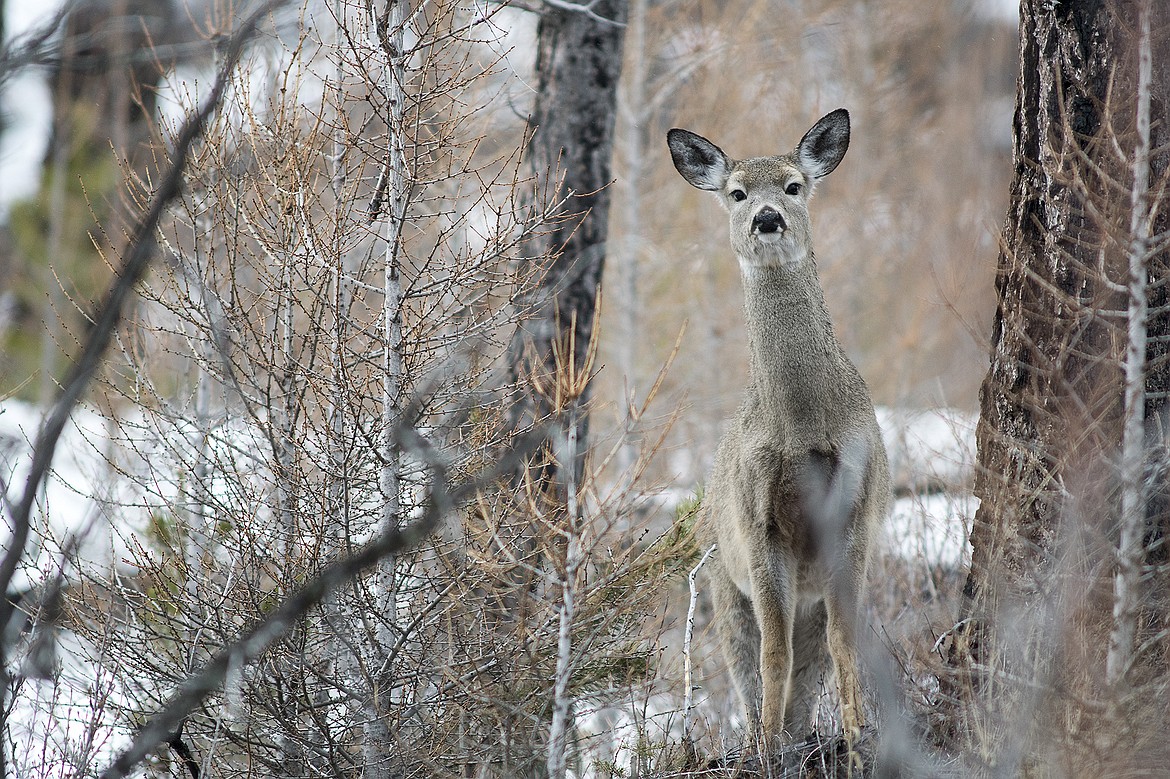FWP not sure how wasting disease spread to Libby
Montana Fish Wildlife and Parks plan to remove and collect samples of roughly 200 white-tailed deer to test for Chronic Wasting Disease in the Libby area.
FWP Regional Supervisor Jim Williams said finding CWD in Libby “caught us by surprise.” The removal of deer is a part of FWP’s incident command team’s action plan to fight CWD.
Officials say they don’t know how the disease ended up in Libby. Previously, cases of CWD were only found well east of the Divide.
No biologist, game warden, hunter, rancher, farmer or logger wants to kill animals unnecessarily, Williams said. But there’s some really valid reasons, and hopefully the community will understand the situation.
“We’re in a unique situation now in [the] town of Libby,” Williams said. FWP is here to be a partner and to work with the community ‘side by side.’”
FWP will be a resource for people in Libby, he said. What is known about CWD can change daily.
Libby is in a tough spot, he said. “This is where wildlife conservation gets a little messy.”
Neil Anderson, disease expert and wildlife program manager with FWP, said nobody has been able to figure out how to eradicate CWD. Certain populations of infected animals could become extinct if left unchecked, he said.
The incident command team is setting a 10-mile radius in Libby from where the initial infected deer was found.
In that area, the team is planning to get numerous samples of deer to determine what the prevalence of the disease is and what percent of the population is infected, he said.
A sample size of 200 randomly sampled deer is considered a minimum, and if FWP gets 300, then they will test 300, he said. It is going to put a “huge dent” in the Libby deer population.
“You need to have a pretty well thought out plan,” he said. Adding, “the goal is to start accumulating some samples.”
Libby Police Chief Scott Kessel said, under specific circumstances, if it is safe to do so, an officer will kill an animal suspected of having CWD and turn it over to FWP for them to collect samples. The officer will assess a reported animal before putting it down.
“We’re not going to be going around at night, slaughtering deer on the playground,” he said.
At a meeting Wednesday, Kessel reminded residents that the best number to call for reporting suspected infected animals is the FWP hotline for Libby-area CWD reporting: 406-291-6539.
On Tuesday, Anderson told residents there is no good way to test live animals for CWD.
The disease is very slow moving, he said. While this is helpful in containing the disease, it also means that a deer positive for CWD may look no different even to a trained eye from one that is perfectly healthy.
On Wednesday, Anderson reminded residents that anything which encourages wildlife to congregate could cause the disease to spread.
Though it is legal to buy deer feed, it is illegal to use that deer feed in Montana, Anderson said. Intentionally feeding deer is a chargeable offense, as it leads to the spread of diseases such as CWD.
Anderson said once the deer are harvested they will go to a class 2 landfill — such as the Lincoln County Sanitary Landfill — and will be buried the same day. The deer are not incinerated, he said.
This is the acceptable nationwide practice for handling these carcasses, he said. FWP will communicate with landfill workers to make sure animals are properly disposed of.
FWP is working with Libby police to try to get any animal that looks like it might have CWD, he said. They are also picking up road kills, because those have a higher prevalence of CWD.
“What we’re talking about here is going out and randomly removing animals” from the Libby area, he said. Mainly, FWP is focusing on sampling white-tailed deer.
Stage one is collecting deer samples within or adjacent to the city of Libby, he said.
Hopefully the disease is limited to Libby, he said. It is unknown how the disease got here and “we may never know the answer to that.”
FWP advised residents in the Libby area, if they spot a deer appearing to be sick, to call 406-291-6539 and leave a message with their name, number and location of the sighting, as well as when they saw the deer.
Ben Kibbey contributed information to this article.


